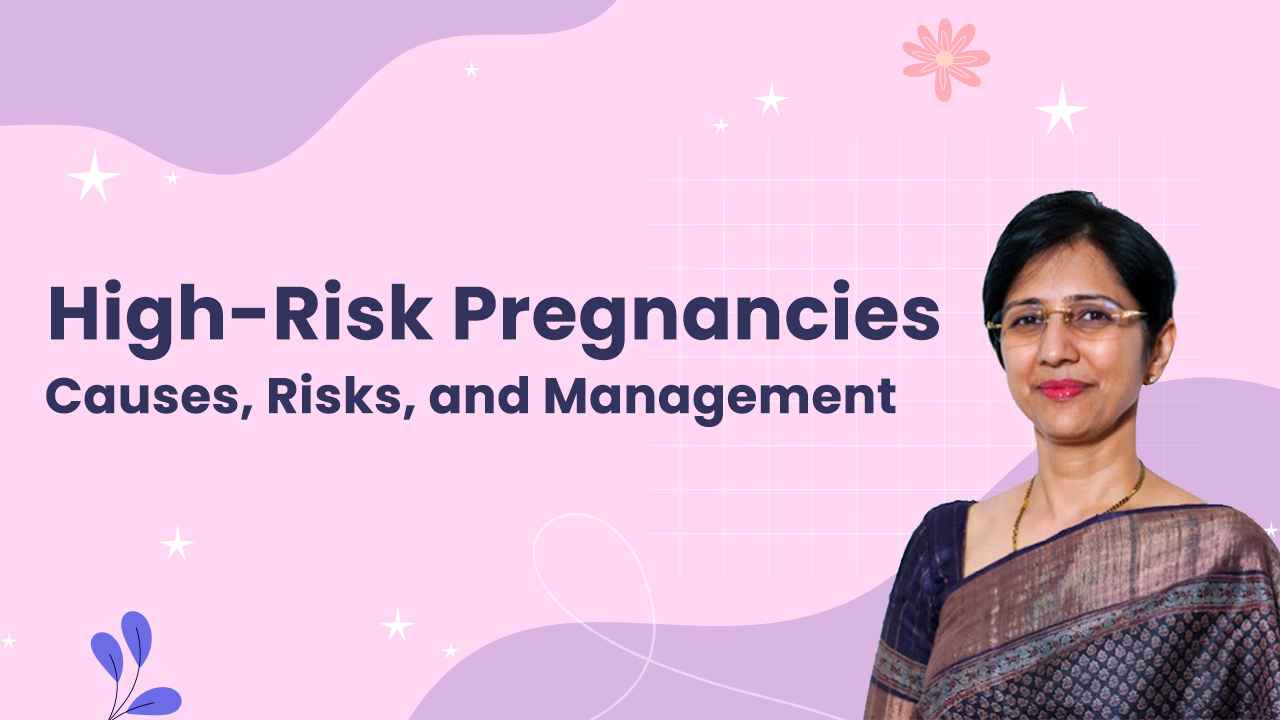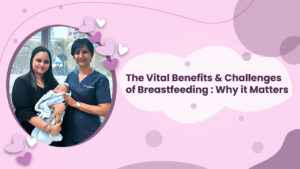Navigating a high-risk pregnancy requires specialized care and understanding of potential complications that can arise. Under the expert guidance of Dr. Rajeshwari Reddy, a distinguished gynecologist with over 23 years of experience and recognized as one of the best in Hyderabad at Continental Hospital, managing high-risk pregnancies involves identifying causes, assessing risks, and implementing effective management strategies. Here’s a comprehensive guide to understanding high-risk pregnancies:
Understanding High-Risk Pregnancies
Causes of High-Risk Pregnancies:
- Maternal Age: Advanced maternal age (over 35) increases the risk of complications such as gestational diabetes and hypertension.
- Medical Conditions: Pre-existing conditions like diabetes, hypertension, autoimmune disorders, and heart disease can complicate pregnancy.
- Previous Pregnancy Complications: History of miscarriages, preterm birth, or cesarean sections may increase the risk in subsequent pregnancies.
- Multiple Gestation: Carrying twins, triplets, or more increases the risk of preterm labor and other complications.
- Placental Issues: Conditions such as placenta previa or placental abruption pose risks to maternal and fetal health.
- Lifestyle Factors: Smoking, substance abuse, and inadequate prenatal care can contribute to pregnancy complications.
Risks Associated with High-Risk Pregnancies
- Maternal Risks:
- Increased likelihood of gestational diabetes, preeclampsia (hypertension during pregnancy), and eclampsia (severe preeclampsia).
- Higher incidence of placental complications, including placenta previa and placental abruption.
- Greater risk of preterm labor and delivery, which can lead to neonatal complications.
- Fetal Risks:
- Growth restrictions due to placental insufficiency.
- Increased risk of birth defects and genetic abnormalities.
- Higher likelihood of premature birth, resulting in potential neonatal intensive care unit (NICU) admission.
Management of High-Risk Pregnancies
- Early and Regular Prenatal Care:
- Monitoring maternal health and fetal development closely through regular appointments and specialized testing.
- Addressing pre-existing conditions and managing them effectively to minimize risks.
- Lifestyle Modifications:
- Advising on diet, exercise, and weight management to optimize maternal health and fetal development.
- Encouraging smoking cessation, avoiding alcohol, and managing stress levels to reduce complications.
- Medical Interventions:
- Prescribing medications to manage conditions like hypertension or diabetes under close supervision.
- In some cases, bed rest or reduced activity may be recommended to minimize risks of preterm labor.
- Specialized Monitoring and Testing:
- Conducting ultrasound scans and other diagnostic tests to monitor fetal growth, placental function, and detect any potential complications early.
- Delivery Planning:
- Developing a comprehensive birth plan that considers the specific needs and risks associated with the pregnancy.
- Ensuring access to facilities equipped to handle potential complications, such as a NICU for premature births.
Support and Care
Navigating a high-risk pregnancy can be challenging, but with the expertise of Dr. Rajeshwari Reddy and the dedicated team at Continental Hospital, Hyderabad, expectant mothers can receive the specialized care needed to manage risks effectively. Regular communication, personalized care plans, and a supportive environment are essential for ensuring the best possible outcomes for both mother and baby.
Conclusion
High-risk pregnancies require proactive management, specialized care, and a collaborative approach between healthcare providers and expectant mothers. By understanding the causes, assessing risks early, and implementing effective management strategies under the guidance of Dr. Rajeshwari Reddy at Continental Hospital, women can navigate their pregnancies with confidence and optimize outcomes for themselves and their babies.




